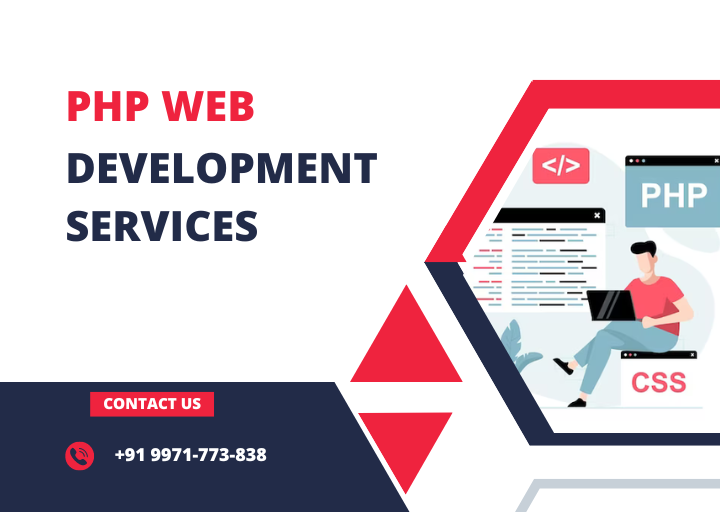PHP is a versatile programming language with a unique feature—it can be seamlessly embedded into HTML. This integration makes it a compelling choice for web development. Instead of wrestling with lengthy HTML code, PHP allows you to manage web content efficiently.
Discover the reasons behind the widespread adoption of PHP in the industry and explore the rates for hiring PHP developers.
Understanding PHP: Its Merits and Appeal
PHP, initially an acronym for Personal Home Page, has evolved into a versatile scripting language ideal for web development. Conceived by Danish-Canadian programmer Rasmus Lerdorf in 1994, PHP now stands for PHP: Hypertext Preprocessor, highlighting its web-focused capabilities.
PHP’s attractiveness lies in its user-friendliness, clear organization, and minimal learning curve. Unlike some conventional programming languages, PHP’s commands are straightforward and intuitive, making it accessible even to beginners. If you’re familiar with the C language, you’ll find PHP coding remarkably similar.
1. Open Source Advantage
PHP is open-source and freely available, simplifying setup for developers. An array of PHP frameworks is at your disposal, each offering full access to framework resources and functionalities. This open-source nature promotes rapid web development by providing easy access to tools and features.
2. Platform Versatility
PHP seamlessly runs on various operating systems, including Windows, Unix, and Linux, ensuring compatibility across platforms. It effortlessly integrates with other programming languages and databases, eliminating the need for extensive redevelopment and saving valuable time and resources.
3. Streamlined Web Application Maintenance
PHP stands out by supporting the Model-View-Controller (MVC) architecture within frameworks, facilitating web application development and maintenance. The MVC structure allows developers to dissect web applications into templates, views, and controllers, separating user interface and business logic layers efficiently.
4. Enhanced Database Handling
Most PHP frameworks empower developers to work seamlessly with popular relational databases. Some even provide Object-Relational Mapping (ORM) systems, simplifying database operations further. ORM systems enable database tasks without the need for intricate SQL code, allowing for direct object-oriented PHP coding.
5. Accelerated Custom Web Application Development
Modern PHP developers face the challenge of creating web applications with complex business specifications while enhancing user experiences. PHP frameworks offer resources, functionalities, and code snippets to expedite the creation of custom web applications.
6. Automated Web Development Tasks
In addition to coding, web developers must tackle various tasks during application development, often consuming considerable time and effort. PHP frameworks come to the rescue by offering features and resources for automating tasks such as caching, session management, authentication, and URL mapping.
7. Reduced Code Length
PHP frameworks alleviate the need for extensive, intricate code, unlike some other programming languages. Code generation functions significantly reduce coding time, ensuring clean and maintainable source code, a boon for developers.
8. Efficient Unit Testing
Regular unit testing of web applications is crucial for identifying individual components. PHPUnit, an object-oriented unit testing tool for PHP, is widely adopted by developers. Many PHP frameworks incorporate PHPUnit, streamlining unit testing processes.
9. Robust Security Features
While PHP has been criticized for vulnerabilities, PHP frameworks offer built-in security features and frameworks to shield websites from evolving security threats. Protection against common risks like SQL injections, cross-site request forgery, and data tampering is simplified for PHP web developers.
10. Cost-Efficient Web Development
PHP, being open source, significantly reduces web development costs. Developers can choose from a plethora of open-source PHP frameworks, leveraging their features and resources to expedite custom web application development without inflating project expenses.
Diverse Applications of PHP
Despite a plethora of programming languages, PHP shines primarily in web development. This open-source language was specifically crafted for robust web applications.
1. Web Pages and Web-Based Applications
PHP’s three-tiered architecture seamlessly manages web pages and web-based applications, offering customizability, interactive user interfaces, online transactions, and database integration. Over 82% of websites rely on PHP for server-side programming, including popular web-based business applications and Facebook games.
2. Web Content Management Systems
PHP’s support for various databases and protocols makes it the foundation of standard Content Management Systems (CMS) like WordPress, Joomla, Drupal, and more. These systems rely on PHP for seamless communication with databases and services.
3. E-commerce Applications
E-commerce has become essential for businesses of all sizes, and PHP simplifies the development of e-commerce applications. Frameworks like CodeIgniter and CakePHP enable rapid development, while platforms like OpenCart, Magento, and PrestaShop are built on PHP for robust online shopping experiences.
Hiring PHP Developers
As of early 2020, PHP remained among the top 10 most-used programming languages globally, making it a valuable asset for businesses.
Global PHP Developer Rates
The hourly rates for PHP developers vary but typically range from $15 to $20 worldwide. With PHP’s widespread use and versatility, businesses can harness this scripting language’s power to create robust, customer-friendly websites and achieve a higher return on investment.
Conclusion
PHP boasts a thriving, supportive community and a wealth of tools, commands, functions, and code snippets available at no cost. It’s ease of use, integration capabilities, cost-efficiency, and widespread accessibility position PHP as one of the most popular server-side programming languages in the industry.

